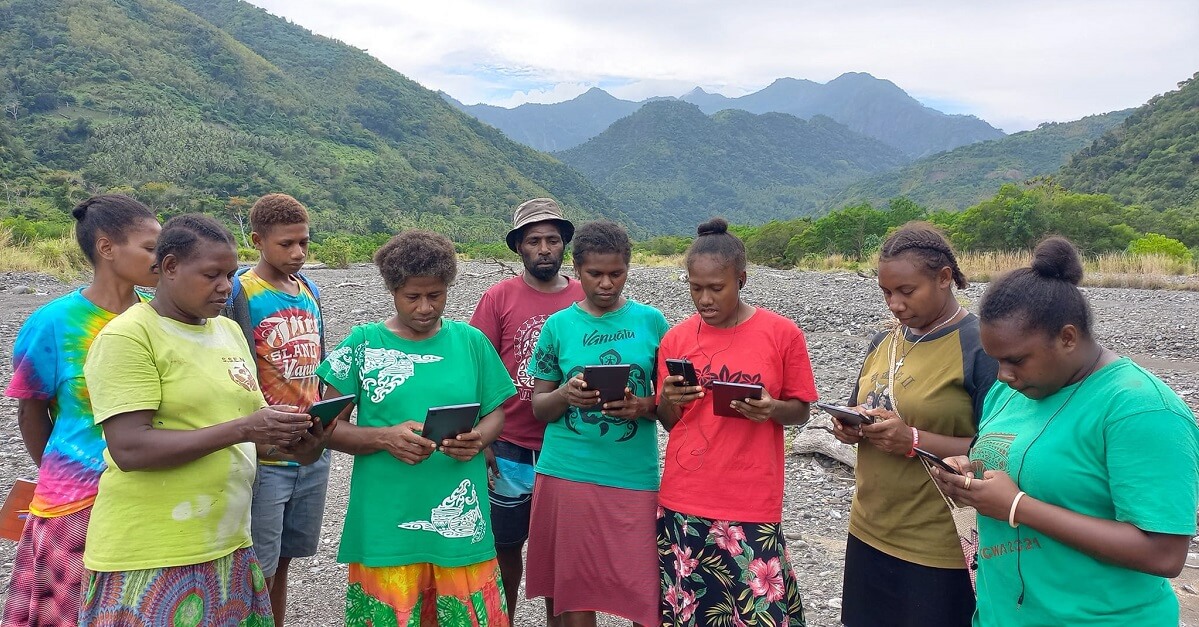DigitALL: Women champion climate resilience digitally in Santo, Vanuatu
Date:

Women in Santo, the largest island in Vanuatu, are championing climate resilience in their communities, and they’re doing it digitally.
Previously, disaster reports in Santo were taken manually and were unlikely to reach authorities on time for them to make urgently needed decisions on disaster response. Now, women can advocate for their communities by providing much needed data to authorities in a way that is timely and accurate, empowering decision-makers to make important calls at-pace for communities most affected by disasters.
This has been possible through the Santo Sunset Women’s Environment Network (SSWEN), in 2022, trained more than 80 women from their community on how to collect information and file disaster reports digitally. The women were trained using a free and open-source data collection software - Kobo provided on 35 tablets with solar chargers to the communities in Santo.
SSWEN aims to promote gender equality and crisis response through an environment-focused gender empowerment program that emphasises the critical role women play in managing natural resources and achieving gender justice.
Kobo software is used in the humanitarian context and allows users to collect data in the field using mobile devices such as phones or tablets, enabling them to collect and analyse data when disasters strike.
Through Kobo, women in Santo can record where people impacted by disasters are located and details on their exact needs. The provision of solar chargers means that women can charge their Kobo on the go, without needing to find a power source in hard-to-reach places.
Women are agents of change in their communities and have a unique understanding of what those around them need in the wake of disasters. Having access to technology like Kobo helps that understanding to be translated into usable data in real-time. It also helps to affirm their position as leaders in their communities, as they are directly linking their communities to authorities, and ensuring that the right kind of help is on the way when disasters strike.
There are plans to further strengthen the capacity of the 80 women with follow-up training this year.
Technology that supports women to respond to disasters in their community is now more urgently needed than ever in Vanuatu and the Pacific region. In 2023 alone, Vanuatu has seen three cyclones make landfall with Tropical Cyclone Gabrielle (Category 3), and two Category 4 cyclones -TC Judy and TC Kevin, all having occurred within the last two months. As the intensity of natural disasters increases in the Pacific, women must be included in innovative responses at both the community and national levels.
SSWEN is supported by The Women’s Peace & Humanitarian Fund (WPHF), with technical support from UN Women. WPHF supports women-led projects in the Pacific, focused on women’s equal participation in humanitarian preparedness, response, and recovery efforts.